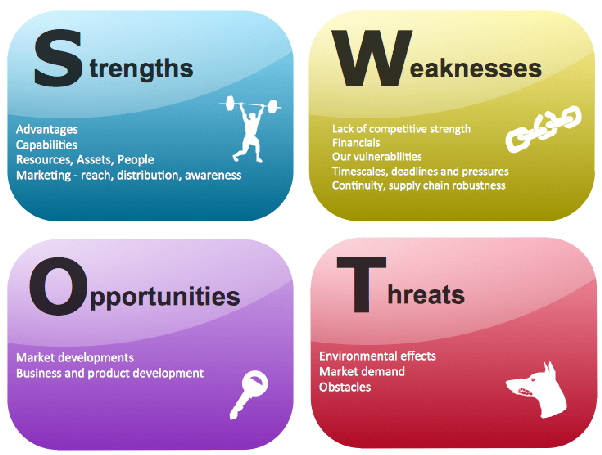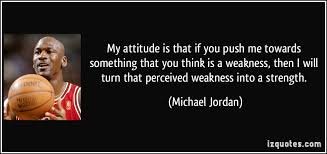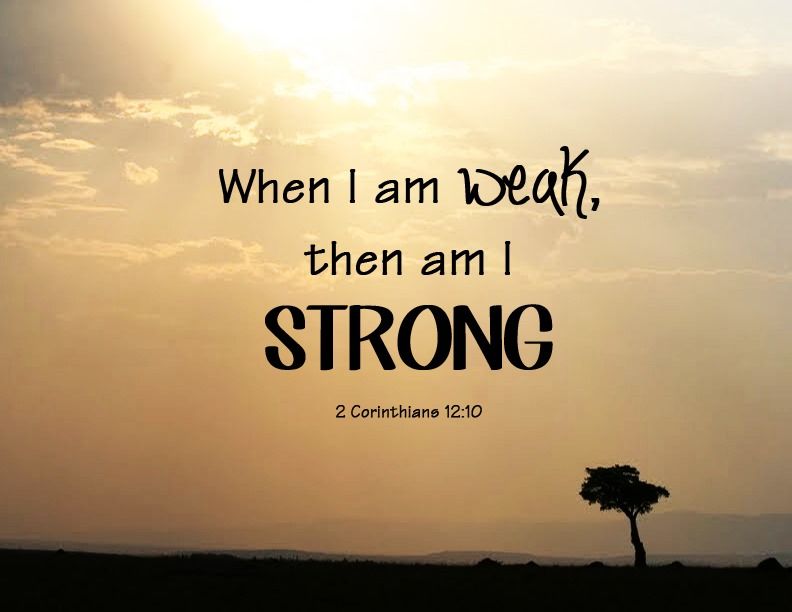DO YOUR SWOT

You are most likely to succeed in life if you use your talents to their fullest extent. Similarly, you'll suffer fewer problems if you know what your weaknesses are, and if you manage these weaknesses so that they don't matter in the work you do.
Strengths
What advantages do you have that others don't have (for example, skills, certifications, education, or connections)?
What do you do better than anyone else?
What personal resources can you access?
What do other people (and your boss, in particular) see as your strengths?
Which of your achievements are you most proud of?
What values do you believe in that others fail to exhibit?
Are you part of a network that no one else is involved in? If so, what connections do you have with influential people?
Consider this from your own perspective, and from the point of view of the people around you. And don't be modest or shy – be as objective as you can. Knowing and using your strengths can make you happier and more fulfilled at work.
Weaknesses
What tasks do you usually avoid because you don't feel confident doing them?
What will the people around you see as your weaknesses?
Are you completely confident in your education and skills training? If not, where are you weakest?
What are your negative work habits (for example, are you often late, are you disorganized, do you have a short temper, or are you poor at handling stress)?
Do you have personality traits that hold you back in your field? For instance, if you have to conduct meetings on a regular basis, a fear of public speaking would be a major weakness.
Again, consider this from a personal/internal perspective and an external perspective. Do other people see weaknesses that you don't see? Do co-workers consistently outperform you in key areas? Be realistic – it's best to face any unpleasant truths as soon as possible.
Opportunities
What new technology can help you? Or can you get help from others or from people via the Internet?
Is your industry growing? If so, how can you take advantage of the current market?
Do you have a network of strategic contacts to help you, or offer good advice?
What trends (management or otherwise) do you see in your company, and how can you take advantage of them?
Are any of your competitors failing to do something important? If so, can you take advantage of their mistakes?
Is there a need in your company or industry that no one is filling?
Do your customers or vendors complain about something in your company? If so, could you create an opportunity by offering a solution?
You might find useful opportunities in the following:

Networking events, educational classes, or conferences.
A colleague going on an extended leave. Could you take on some of this person's projects to gain experience?
A new role or project that forces you to learn new skills, like public speaking or international relations.
A company expansion or acquisition. Do you have specific skills (like a second language) that could help with the process?
Also, importantly, look at your strengths, and ask yourself whether these open up any opportunities – and look at your weaknesses, and ask yourself whether you could open up opportunities by eliminating those weaknesses.

Threats
Simon, one of my colleagues, is a much stronger speaker than I am, and he's competing with me for the art director position.
Due to recent staff shortages, I'm often overworked, and this negatively impacts my creativity.
The current economic climate has resulted in slow growth for the marketing industry. Many firms have laid off staff members, and our company is considering further cutbacks.

Good Morning #STEEMIAS#
Lets exhibit amazing strength this week.
Hi! I am a robot. I just upvoted you! I found similar content that readers might be interested in:
https://www.mindtools.com/pages/article/newTMC_05_1.htm